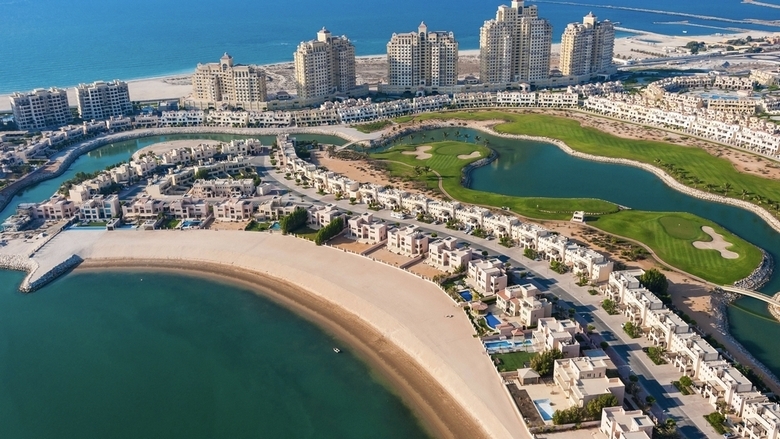In the middle of November 2019, Sheikh Saud leader of RAK attended a solemn religious ceremony at the Sheikh Zayed Mosque, where the body of Tariq Hussein Hassan Al Baloushi was laid to rest. The soldier, a native of Ras al Khaimah, died while deployed to Saudi Arabia as part of the coalition formed between that country and the United Arab Emirates. Leading these services and offering condolences to the families of fallen soldiers are among the most difficult actions expected of sovereign leaders; in recently doing so, His Highness Sheikh Saud followed a tradition dating back to the 16th century, when the house of Al Qasimi rose to power.
In the mid-1700s, when the coastal region formerly known as Julfar was subject to piracy and subjugation by the British and Portuguese empires, Sheikh Rashid bin Matar Al Qasimi ruled the jurisdiction that at the time encompassed the modern Emirates of RAK and Sharjah. He ruled during a turbulent time; the Al Qasimi clan not only had to deal with rampant piracy by the British, Dutch, and Portuguese but also with tribal infighting. After going to war against the Sultan of Muscat from 1758 to 1777, Sheikh Rashid deferred power to his son.
The subsequent rule of Sheikh Saqr bin Rashid Al Qasimi resulted in an affirmation of RAK and Sharjah as a maritime trading post, and a route to Persian coastal towns across the Strait of Hormuz was established thanks to the seafaring knowledge left by Ahmed ibn Majid two centuries earlier. Piracy continued during this period, but Sheikh Saqr was able to reach peaceful accords with the British Royal Navy; moreover, a cessation of conflict with Muscat was obtained through an alliance to repel invading forces from the First Kingdom of Saudi Arabia.
In 1803, Sheikh Sultan bin Saqr Al Qasimi ascended during a rekindling of tribal fighting against Muscat, but yet another peace treaty was struck with the Royal Navy as a mediator; this enabled direct access to maritime ports in India, thus sparking a period of trading and prosperity. Unfortunately, British pirates and the Royal Navy worked together to sack the Emirate. Various Sheikhs ascended during another period of conflict and turmoil that lasted until 1869, when Sheikh Humaid bin Abdullah Al Qasim ruled over a single RAK despite palace intrigue, a failed coup attempt, and a breach of a maritime truce.
During World War II, Sheikh Sultan bin Salim Al Qasimi ruled during a significant period for RAK, which was marked by de facto independence from Sharjah and recognition as a Trucial State set up by the British Crown. Pearl diving, agriculture, and maritime trading prospered in the early decades of Sheikh Sultan’s rule, but they quickly declined because of fighting within the Al Qasimi clan. There was also the more scandalous matter of petroleum exploration concessions being secretly assigned to a British oil company, and this eventually resulted in the ascension of Sheikh Saqr bin Mohammed Al Qasimi, a ruler who was not only a benevolent and magnanimous leader but also visionary in the sense that he believed in the ability of RAK to regain the greatness it had achieved during the Julfar period.
Sheikh Saqr bin Mohammed Al Qasimi believed in social justice and quality of life for the people of RAK. He was a leader who did not have time for royal family conflict, which he experienced but was able to resolve. Upon the return of his son, the current ruler Sheikh Saud from studying in the United States, Sheikh Saqr carefully explained his vision of achieving permanent peace through economic growth, education, and prosperity. When Sheikh Saud was still Crown Prince, his father appointed him to a municipal post, and this marked the beginning of the economic transformation of RAK.
These days, Sheikh Saud has earned significant praise for executing his father’s vision and surpassing all expectations. He is not a technocratic ruler; nonetheless, he is a supporter of appointing specialists to advise him as he leads RAK into the 21st century. Now that RAK is an international business hub, the next step is to continue building up the Emirate as a global competitor to Abu Dhabi and Dubai, a goal that seems to be getting closer to reality every day.

Leave a Reply